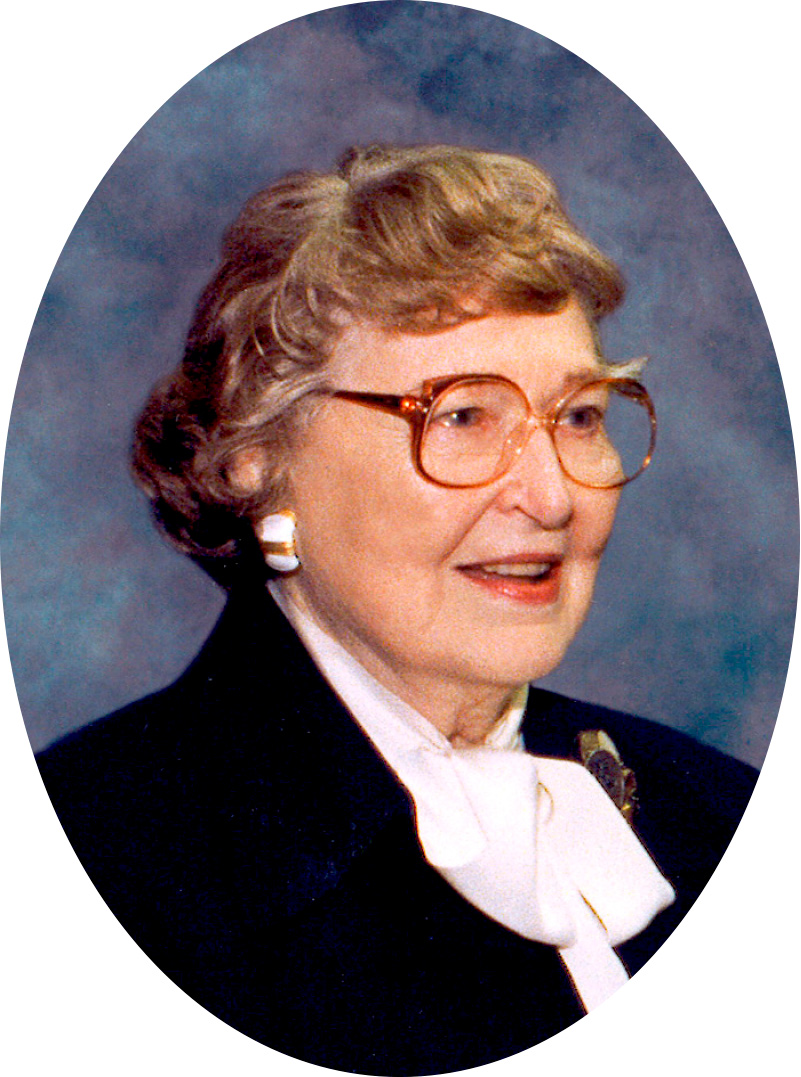
Who Is
Julia Jones Matthews?
he footprint of Julia Jones Matthews’ legendary philanthropy extends deep and wide across the environment and culture of Abilene, Texas. Portending this moment we celebrate, Matthews long recognized the importance of health care. Over many years, she has magnanimously shared her considerable resources to address health needs in the Abilene community by supporting local health care institutions including Hendrick Health, West Texas Rehabilitation Center, TTUHSC and many others.
Born in December 1918, much of Matthews’ early life was spent in her childhood home on Abilene’s Alta Vista Hill, enjoying the company of her many childhood friends. During her youth, she developed a life-long appreciation of film and spent many afternoons watching the latest release in downtown Abilene’s Paramount Theatre. The pursuit of education led her to the East Coast in 1933. She attended the Maderia boarding school in Virginia where she excelled both academically and athletically. After earning a bachelor’s degree in economics from Massachusetts’ Smith College in 1942, she returned home to Abilene, marrying Albany rancher John Matthews later that year. They had five children, Joe, Jill, Watt, Matt and Kade.
Dutiful service to others is a theme in the extended family. Matthews’ grandfather, K.K. Legett, helped establish not one but two Abilene institutions of higher learning, Simmons and McMurry Colleges. They are known today as Hardin-Simmons University and McMurry University. Her mother, Ruth Legett Jones, was known as “the quiet philanthropist,” preferring to make charitable contributions under the veil of anonymity. Through her work with the Dodge Jones Foundation, which she established in 1954 with her mother and her sister, Edith Jones O’Donnell, Matthews employed her family’s resources to improve the lives of others.
Following a seed grant from the Dodge Jones Foundation, the Community Foundation of Abilene was chartered in 1985 and serves as an ever-growing reminder of Matthews’ long-term vision for endowed philanthropy in Abilene.
In 2016, the Texas Senate adopted Senate Resolution 384 to memorialize Matthews and her 97 years of life. The resolution states, “A woman of vision, courage and compassion, she gave unselfishly to others, and her graciousness, her remarkable philanthropic spirit, and her enthusiasm for living each day to the fullest were an inspiration to all who knew her and all who were privileged to share in her life.” Julia Jones Matthews forever changed the landscape of Abilene — and TTUHSC.
LET’S HEAR IT FROM THE ALUMS
NEW PERSPECTIVE on CARE
“It was one of the things that made me realize public health could have an impact on an enormous number of lives,” he said.
The interest led him to become part of the second cohort of students to pursue a Master of Public Health at TTUHSC.
As director of clinical operations for TTUHSC School of Medicine Department of Ophthalmology, O’Dell brings a holistic perspective to what is often a business-focused role. “Being focused on the business is important, but with my public health degree I bring an additional perspective. I’ll ask, ‘Is there something we could have done to prevent a disease upfront? or Can we spend a little more money now to prevent a problem later?’” O’Dell says that perspective is invaluable and it’s why he’s excited to see how the new school takes the ideas of population and public health even further. “I really look forward to seeing how future graduates go out and make change.”
AN ANSWER TO A HEALTHIER COMMUNITY
“I was extremely hopeful,” he said upon learning that TTUHSC would be adding a new school of population and public health. “I was born and raised here in West Texas. I know what it’s like to have the health care challenges of cancer, diabetes and other issues we often see in the community. I saw them growing up, and I always felt that we could do more to help these folks out. The school is going to be able to help provide the knowledge we need to create a healthier West Texas and a workforce of future practitioners.”